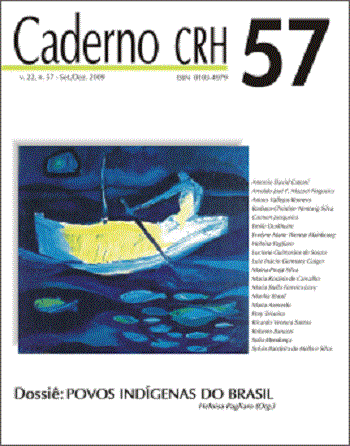DOS LEYES DE LA EVOLUCIÓN PENAL
DOI:
https://doi.org/10.9771/ccrh.v22i57.19055Keywords:
evolução penal, castigo físico, prisão, consciência moralAbstract
O texto discute as mudanças da punição ao longo da história das sociedades. Analisa o abrandamento do castigo físico e a ascensão da prisão como lócus central da punição no mundo moderno. Relaciona estes processos com a diferenciação social, caráter do poder e mudança na concepção dos delitos. Aponta a necessidade de criação de instituições penais que respondam melhor às novas aspirações da consciência moral.PALAVRAS CHAVE: evolução penal, castigo físico, prisão, consciência moral.
TWO LAWS OF THE PENAL EVOLUTION
Emile Durkheim
This text discusses the changes of punishment throughout history of the societies. It analyzes the softening of physical punishment and the ascension of prison as main locus of punishment in the modern world. It relates these processes with the social differentiation, character of power and change in the conception of crimes. It points the need for the creation of penal institutions that answer better to the new aspirations of moral conscience.
KEYWORDS: penal evolution, physical punishment, prison, moral conscience.
DEUX LOIS DE L’EVOLUTION PENALE
Emile Durkheim
Ce texte parle des changements de punition tout au long de l’histoire des sociétés. On y analyse l’allègement des châtiments physiques et l’avènement de la prison comme lieu central de punition dans le monde moderne. Ces processus sont mis en relation avec la différenciation sociale, le type de pouvoir et le changement de conception concernant les délits. Le besoin de créer des institutions pénales capables de mieux répondre aux nouvelles aspirations de la conscience morale y est mis en évidence.
MOTS-CLÉS: évolution pénale, châtiment physique, prison, conscience morale.
Downloads
Download data is not yet available.
Downloads
Published
2010-05-19
How to Cite
Durkheim, E. (2010). DOS LEYES DE LA EVOLUCIÓN PENAL. Caderno CRH, 22(57). https://doi.org/10.9771/ccrh.v22i57.19055
Issue
Section
Textos Clássicos
License
Todo o conteúdo da revista, exceto onde indicado de outra forma, é licenciado sob uma atribuição do tipo Creative Commons BY.
O periódico Caderno CRH on-line é aberto e gratuito.





